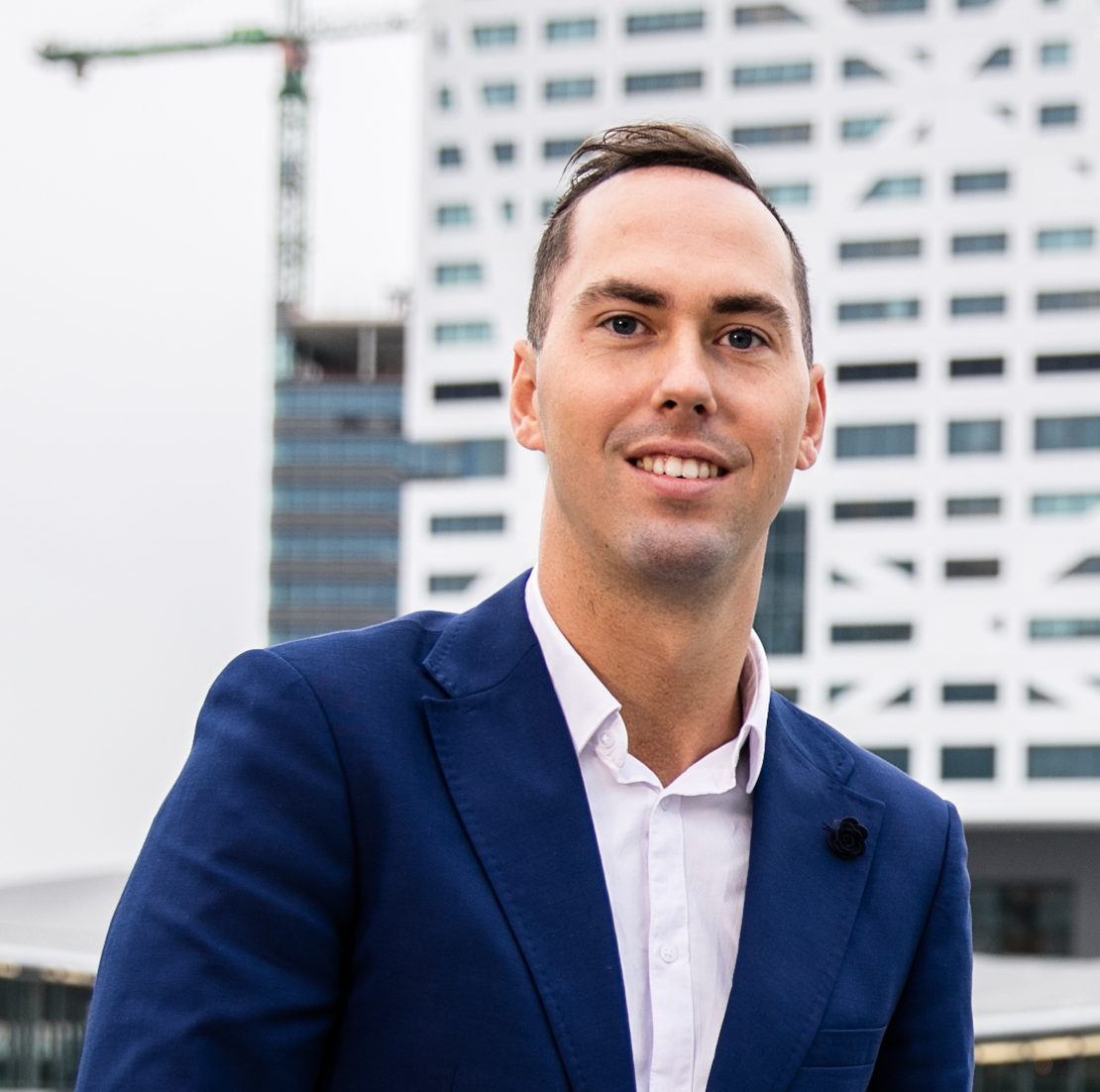Rob Richelle
Taking the train to success (and it’s not delayed)
At the end of April 2017 Rob Richelle completed his master’s degrees in Transport & Planning as well as Transport, Infrastructure and Logistics, scoring ten out of ten for both (!). In his MSc theses he explained how untanglin can increase robustness at complex railway stations. Commissioned by infrastructure manager ProRail, Rob looked at the effects of the untangling the tracks of Utrecht Central Station. So how will his findings affect travellers?
Untangling Utrecht Central Station
Say you are waiting for a train to take you from Gouda to Rotterdam. The train is late because of a switch failure in Utrecht. But the failure is not only affecting the train to Rotterdam: all trains from Utrecht are delayed. How can a single switch failure in Utrecht have such a widespread effect on so many different lines? ‘The reason is that at complex railway junctions such as Utrecht many lines intersect. The tracks are linked by switches. A problem with one means linked up tracks can no longer be used,’ Rob explains. In order to solve the problem ProRail decided to untangle the tracks in the design for the new station. That meant fewer switches and separate lines, each with their own platform. Apart from the tracks, catenary and IT systems also had to be separated. A failure occurring in either can put several lines out of use just as effectively as a switch failure. Rob included the untangling of these systems in his final MSc research as well.
Less flexibility
It sounds simple enough: separate all lines and the train from Gouda to Rotterdam will always run on time. But not all delays are caused by infrastructure failures. ‘A train may come to a standstill because of a technical problem. In a conventional system the switches would enable the other trains to run around it but in the new system without switches a line can be disrupted for a long time while ten other tracks are free. In order to avoid this kind of delay switches are still necessary.’ Rob included this and many others in a computer model which ProRail can use to test the robustness of its main railway stations.
The human factor
Rob’s main focus was on infrastructure rather than the effect of human behaviour on the railway system. People who walk down tracks, for instance, did not figure in his analysis. ‘Then there was railway staff to consider. They often change from one line to another and in that sense the system is still tangled,’ Rob says. Even if the infrastructure functions perfectly the train to Rotterdam may still be delayed, for instance because a train driver from Eindhoven missed his connection in Utrecht. Despite the human factor there are now far fewer delays than before. ‘ProRail is now looking to untangle other hubs, such as Amsterdam Central Station and The Hague Central Station. The decision to remodel all the tracks is a costly one. ProRail needs to find out if the benefits outweigh the costs in the new design and my model helps them do that.’
From theory to practice
Rob’s research brought him into close contact with the practicalities of railway design. ‘I was able to tell designers about my findings along the way, which made it really fun for me. And they gave me advice as well.’ During his time as a researcher Rob was nominated by Dutch railway company NS to enter BestGraduate, a talent recruitment competition. He came second in the final and was offered a job on the spot. ‘I was given the opportunity to talk to many people within NS and ended up in a job that was right for me. I signed my contract in October 2016 and started work in February 2017 in spite of the fact that I didn’t graduate until April 2017.’ Rob is now working as an infrastructure strategist which means he is looking at the future infrastructure needs of NS and what it takes to keep the Netherlands moving. ‘This has led to my involvement in talks between ProRail and NS about, for instance, the renovation of Amsterdam Central Station, another station that will be untangled. My research means I can bring a lot of expertise to the table.’
| Graduation year: | 2017 |
| MSc: | Transport and Planning & Transport, Infrastructure and Logistics |
| Position: | Infrastructure strategist |
| Company: | Dutch Railways (NS) |

